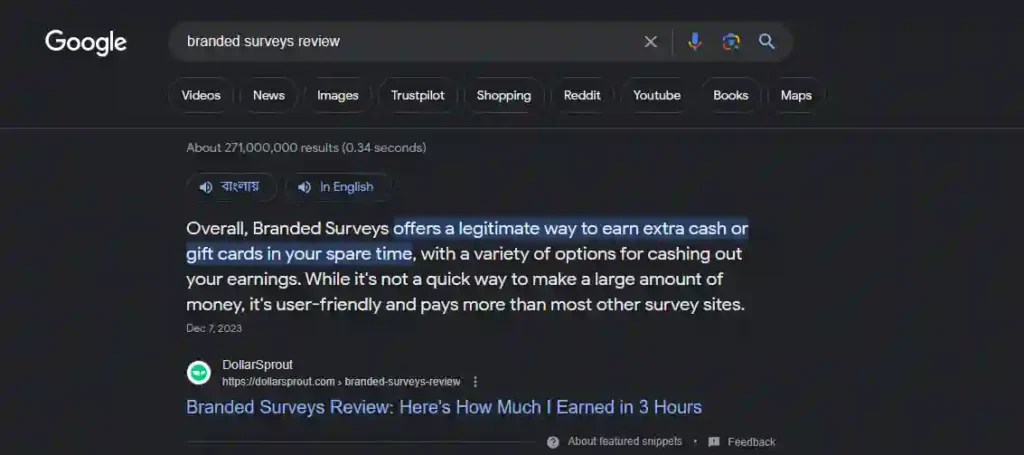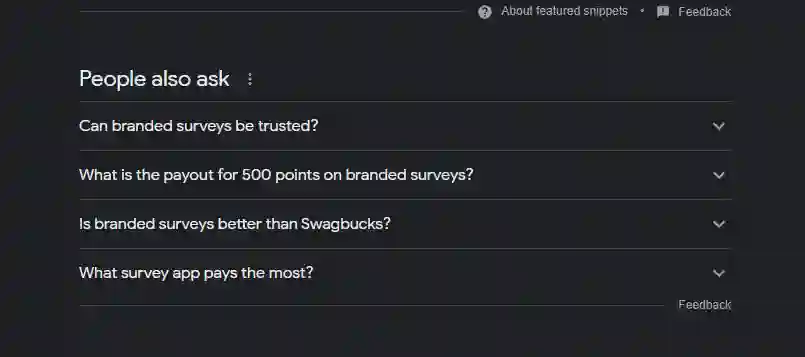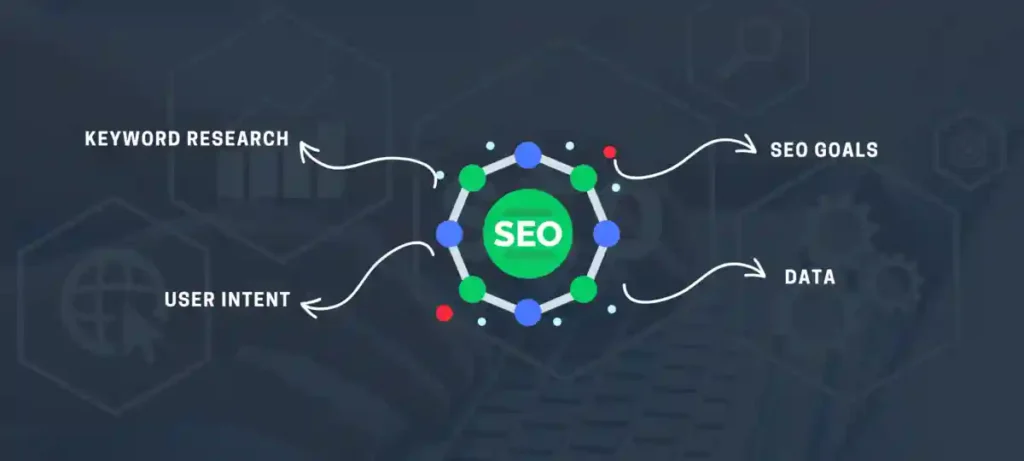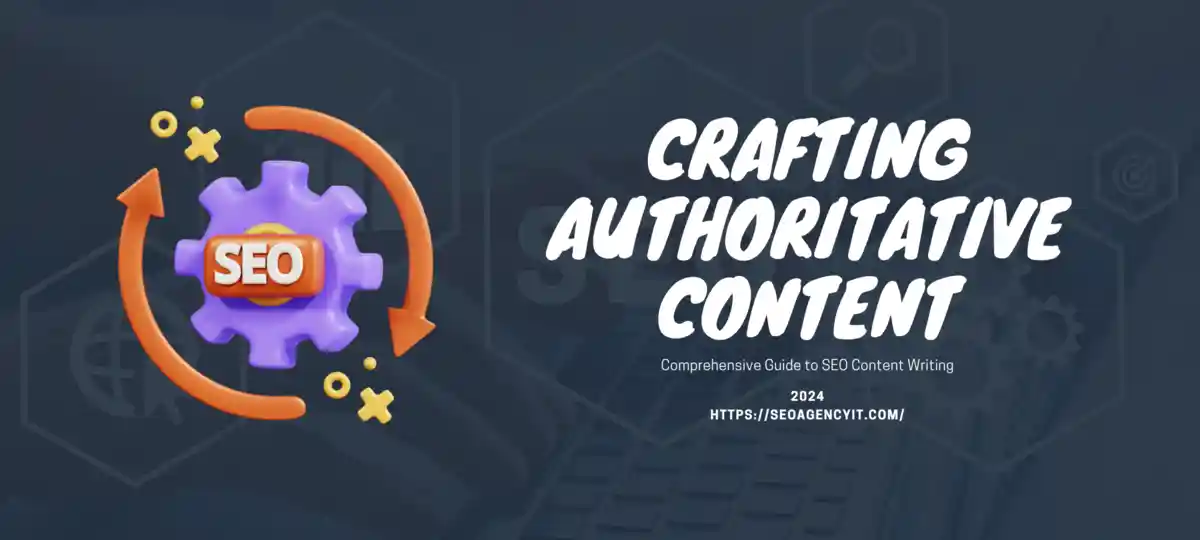In the ever-evolving realm of digital presence, the conventional methods of SEO content creation, which concentrate solely on a specific topic or facet, need to be revised to enhance visibility and attract traffic.
Contemporary users and search engine algorithms increasingly demand exhaustive information that frequently exceeds the subject expertise of a content team.
The task at hand? Crafting comprehensive content that exudes authority and expertise, all the while remaining attuned to the appropriate search intent and pertinent keywords.
Within this article, we’ll guide you through the process of generating authoritative content and fine-tuning visibility within search results.
What is Authoritative Content?
Authoritative content encompasses blogs, articles, and pages renowned for their reliability and precision. This type of content delivers valuable insights, thorough analyses, and meticulously researched information. Frequently authored by experts in specific fields or supported by credible sources, authoritative content stands as a beacon of trustworthiness.
Consider authoritative content as your coveted pass to establish trust and credibility with your audience. By consistently presenting stellar, classic pieces, you’re not merely disseminating information – you’re asserting your role as a frontrunner in the industry. It revolves around creating a space where people not only consume your content but also appreciate and rely on your expertise.
Why We Need to Change How We Write Content
The explanation is quite simple: the expectations for high-quality content from both users and search engines have changed significantly over time.
In the past, a brief page focused on a keyword was enough to drive traffic.
(Those who were involved in search engine optimization years ago may still remember when a short 300-word article could secure rankings and attract visitors.)
However, in today’s landscape, achieving the results requires more than providing additional information that reinforces our content expertise and offers users detailed answers. We also need to consider the ways in which users now conduct their searches.
Here are just a few of the changes that have influenced how people approach their searches;
1. RankBrain and BERT

Google’s RankBrain and BERT updates have revolutionized how we search for information. Notably, they enable us to submit fragmented details about our query, and the search engine adeptly furnishes the desired results.
Let me illustrate this with a typical example: Even with just a few vague details provided, the search engine efficiently retrieves the relevant content. It showcases a profound understanding of the context behind the search query, surpassing the mere literal interpretation of individual words.
2. Voice Search

Apart from typing queries, we now have the added convenience of posing questions to search engines or voice assistants like Amazon Echo and receiving answers. As we explore the world of voice search, it becomes clear that the ability to retrieve information from Google or voice assistants has not only impacted the length of our queries but also influenced their content and overall character.
3. Featured Snippets

In numerous cases, we don’t have to click on a listing to find the answer we seek, all thanks to the Answer Box.
4. Helpful Content System
In 2022, Google introduced the Helpful Content Update, emphasizing the importance of distinctive, high-quality content with increased specificity. This implies that content needing more originality, quality, and relevance now faces lower rankings in search results.
For many enterprise SEOs, the primary marketing goal is to align with the end-user experience.
For more insights, consider reading A Proactive Approach to the Helpful Content Update.
5. Generative AI
The rise of Generative AI has had an impact on how we retrieve information. With AI-powered content creation like Google’s Search Generative Experience and the improved Bing search results now include a range of sources, some generated by algorithms rather than human authors. As a result, our approach to searching has changed.
Notably, our search queries have evolved to include phrases even if they aren’t directly related to the information we’re seeking. It’s important to acknowledge that search engines, such as Google, have become better at understanding these ambiguous queries.
These changes require us to adjust how we create content. To achieve rankings, it’s crucial to consider these evolving dynamics when producing content. Additionally, providing expert and authoritative insights that align with the queries your users are making is essential.
What Types of SEO Content Can You Create?
In its broadest sense, any item featured in Google’s search results is considered an asset. To be more precise, the predominant content types influenced by SEO strategies encompass:
- Blog posts and extensive articles
- Evergreen content – comprehensive assets designed to capture universal audience interests
- Videos – Google tends to highlight them in search results
- Tutorials with the potential to appear in the Answer Box
- Podcasts (with ongoing experimentation for inclusion in the SERP)
- Product and category page content tailored for transactional intent
Now that you’re familiar with the diverse content types integral to your digital marketing strategy let’s delve into the nuances of crafting content for optimal SEO impact.
How to Write Authoritative SEO Content
To deliver content that not only imparts valuable insights but also targets a diverse array of search phrases, it’s crucial to ensure that your content:
- Establishes authority on the given topic
- Provides comprehensive information that spans the breadth of the subject matter
- Aligns with the audience’s intent for the sought-after information
Now, the question arises: How do you go about creating a piece of authoritative content? Let’s delve into the various aspects that signify authoritative SEO content below.

Firstly, adhering to Google’s Search Quality Guidelines is paramount. Google’s Search Quality Guidelines, specifically the E-A-T (Expertise, Authoritativeness, Trustworthiness) framework, underscores the significance of authoritativeness in your content. This guide offers insights into assessing a website for potential misinformation about products or services and the display of content that may arouse distrust.
E – Experience:
In the realm of the digital landscape, firsthand experiences hold immeasurable value, especially with the increasing prevalence of AI-generated content. Google acknowledged the significance of this by incorporating “experience” into its search quality guidelines in December 2022.
Unlike AI, human experiences are inherently unique, offering authentic insights. Prioritizing firsthand experiences and fostering trust not only distinguishes your content but also instills a sense of security for your audience when they interact with your content or avail your services.
E – Expertise:
The second “E” in Google’s Search Quality Guidelines pertains to the expertise of the content creator or the website.
Here are straightforward methods to showcase expertise:
- Attribute posts to a specific author, ensuring their bio details their relevant experience.
- Conduct thorough fact-checking in your content and consistently reference verifiable facts.
- Ensure the technical soundness of your site by addressing any errors and maintaining smooth functionality.
A – Authoritativeness:
Authoritativeness is tied to the standing and influence of the content creator or website within a specific industry or topic area.
Google evaluates various signals, including backlinks, mentions from other credible sources, and the overall reputation of the website to ascertain its level of authority.
T – Trustworthiness:
Trustworthiness revolves around the dependability and credibility of both the content and the entire website. Google assesses factors such as information accuracy, transparency, privacy policies, and the overall reputation of the website to gauge its trustworthiness.
Here’s a concise list of measures to ensure your site conveys trustworthiness:
- Clearly display easy-to-find contact information, including your address, email, and phone number.
- Provide easily accessible information on how to address refund, return, or cancellation inquiries. As a bonus, ensure it’s indexable.
- Incorporate references to facts and scientific information whenever relevant.
- Offer a transparent and clean advertising experience, providing insights into why or where an ad is being displayed.
Conduct Keyword Research to Find the Words Users Search For
Before penning down a single word, it’s essential to embark on comprehensive keyword research to understand how your audience explores information online.
For an in-depth walkthrough of the process, our guide on how to conduct keyword research provides detailed instructions. Give it a thorough read to learn how to pinpoint the most effective keywords. This ensures that your content remains pertinent throughout the entire buyer’s journey.
To streamline the keyword research endeavor, SeoAgencyIt leverages the world’s most competitive dataset, Research Grid. This resource unveils content gaps and SEO-oriented content ideas, ensuring your coverage encompasses all facets of users’ search queries.
Take a Strategic Approach to Those Keywords
This step is crucial yet often underestimated. It’s imperative to grasp the questions searchers have regarding your topic.
While keywords play a pivotal role in shaping the content’s structure, the required information, and even its optimal length, a more in-depth understanding is necessary to formulate a truly effective SEO content strategy.
#1. Search Intent
A writer must delve into the search intent, understanding what motivates users to search and the purpose behind their information quest.
All search queries fall into one or more intent categories, such as Informational, Transactional, Navigational, or Local. The user’s intent dictates the type of content and guides the focus of the copy. For instance, a blog post or article aligns well with searches driven by informational intent, while a buyer’s guide is more suitable for those with transactional intent.
Authoritative content goes a step further by considering user search behavior and targeting semantically related words and phrases. This approach enhances the content’s relevance to users and improves its ranking on search engines.
Let’s take the example of the phrase “gaming desktop.” A prospective buyer might also explore terms like “gaming rig” or “gaming performance.”
Incorporating these terms in your content makes it more pertinent and captivating to a broader audience of searchers, increasing the likelihood of appearing in search engine results.
#2. Analyze the SERP
It’s essential to assess whether a specific piece of content has the potential to be featured in the Answer Box. To gauge this, check if Google displays a Featured Snippet for the relevant keyword.
Another factor to consider is the search intent, as informational intent-based keywords are more likely to trigger the Answer Box.
When deciding on your content topics, don’t overlook the “People Also Ask” section on the SERP. This section offers valuable insights into what other pertinent information users are seeking related to the keyword. Moreover, if you address these questions in your content, segments of your material might appear in the “People Also Ask” dropdown, providing additional visibility.
#3. Skyscraper
Lastly, content marketers should analyze the highest-ranking content, searching for patterns that unveil what Google deems as the premier piece on the topic.
This exploration can uncover topic ideas that may need to be noticed, ensuring your content comprehensively covers the subject matter. This approach reinforces the authoritative nature of your page.
#4. Goals and Performance
To craft exceptional SEO-driven content, it’s crucial to comprehend the purpose of your content from the user’s standpoint.
Consider what your content achieves for users and how it explicitly assists them. Keep in mind that your primary goal is to captivate readers. The more effectively you accomplish this, the higher the likelihood that Google will prioritize your content in SERP rankings.
Additionally, having substantial data is imperative for assessing the overall performance of your content. When data underpins your content creation process, you gain insights into whether you’ve achieved your goals and identify necessary adjustments to reach them.
Define the Writing Criteria to Create Authoritative Content
Armed with all this information, it’s crucial to establish clear criteria for crafting your content. Developing guidelines for every copywriter contributing to your site is essential to maintaining consistency and quality across your content.
- Semantic must-use keywords
A clear indicator of authoritative content is its comprehensive coverage of the topic.
Authoritative pages or articles go beyond the expected, providing more information than one would typically anticipate about a given subject. They not only reference information already familiar to the reader but also introduce novel aspects they might have yet to consider.
In essence, this type of content not only meets but surpasses the reader’s expectations, anticipating and over-delivering on their needs.
Let’s illustrate this with a quick example.
Imagine you’re creating content centered around the phrase “credit cards.”
Naturally, such a page would cover different types of credit cards and their applications. However, users might also seek information on related aspects such as credit history, credit limits, balance transfers, and more.
Incorporating sections that delve into these additional details not only enhances the content’s authority on the topic but also addresses diverse user queries. This, in turn, makes the content more valuable in the eyes of search engines, elevating its importance and visibility across various search queries.
- Length and Type of Content
Discovering the optimal word count involves conducting an SEO content analysis of the top-ranking posts. Longer content tends to demonstrate a more in-depth understanding of the topic.
Additionally, consider interspersing longer text with visuals like graphs, infographics, or block quotes. These elements not only bolster authority but also contribute to an improved user experience.
- Meta Data
Craft a well-optimized title and meta description for your landing page. Ensure these are tailored to your target audience. Additionally, explore the use of OpenGraph tags to create alternative versions for social media sharing. These alternate versions can be designed to grab more attention compared to the standard meta tags intended for SEO.
- Internal Links
Delve into your topic clusters and strategically incorporate interlinks to enhance your overall authority on the subject. Addressing a topic from various perspectives signals to both users and Google that you possess comprehensive knowledge of the subject.
Utilize Topic Explorer to effortlessly identify semantically related keywords based on your seed keyword, facilitating the creation of a comprehensive topic cluster. The tool offers multiple filtering options, including intent, industry, keyword patterns, and search volume, allowing you to pinpoint the most relevant keywords for your content creation.
Now integrated with Sia, our AI-driven SEO assistant, Topic Explorer, goes a step further by automatically identifying alternative search queries related to a topic. It even predicts what users might search for before and after entering a keyword. These advanced features streamline the process of crafting comprehensive and authoritative content on a given topic.
How to Create Authoritative Content at Scale
The process of optimizing a single piece of content through the steps above demands a significant time investment. To streamline and expedite this content creation and optimization process, we introduced Content Fusion.
Content Fusion stands as a fully integrated content marketing solution designed to enhance a writer’s research efficiency by integrating semantically related topics and identifying pertinent subjects associated with search demand.
Within Content Fusion, writers can optimize existing content to bolster their authority, leveraging AI-driven insights provided by the tool’s content analysis and optimization recommendations. Notably, Content Fusion is now seamlessly integrated with Sia, our intelligent AI-powered SEO assistant. This integration allows users to generate outlines, draft paragraphs, or even rewrite existing content effortlessly using the writer tool.
Sia harnesses its extensive knowledge of the topic and user preferences, employing AI to handle each task. Users can highlight specific sentences to generate a starter paragraph, which can then be refined, optimized, and customized based on product knowledge. To further refine content creation, Content Fusion offers Content Profiles, allowing users to define the target audience, tone of voice, output language, and content type for each piece.
It’s essential to note that Sia’s outputs are intended for direct publication with human review. Instead, they serve as aids to overcome writer’s block and streamline the writing and optimization process.
As emphasized in Google’s guidelines on AI-generated content, “AI has the ability to power new levels of expression and creativity, and to serve as a critical tool to help people create great content for the web.”




